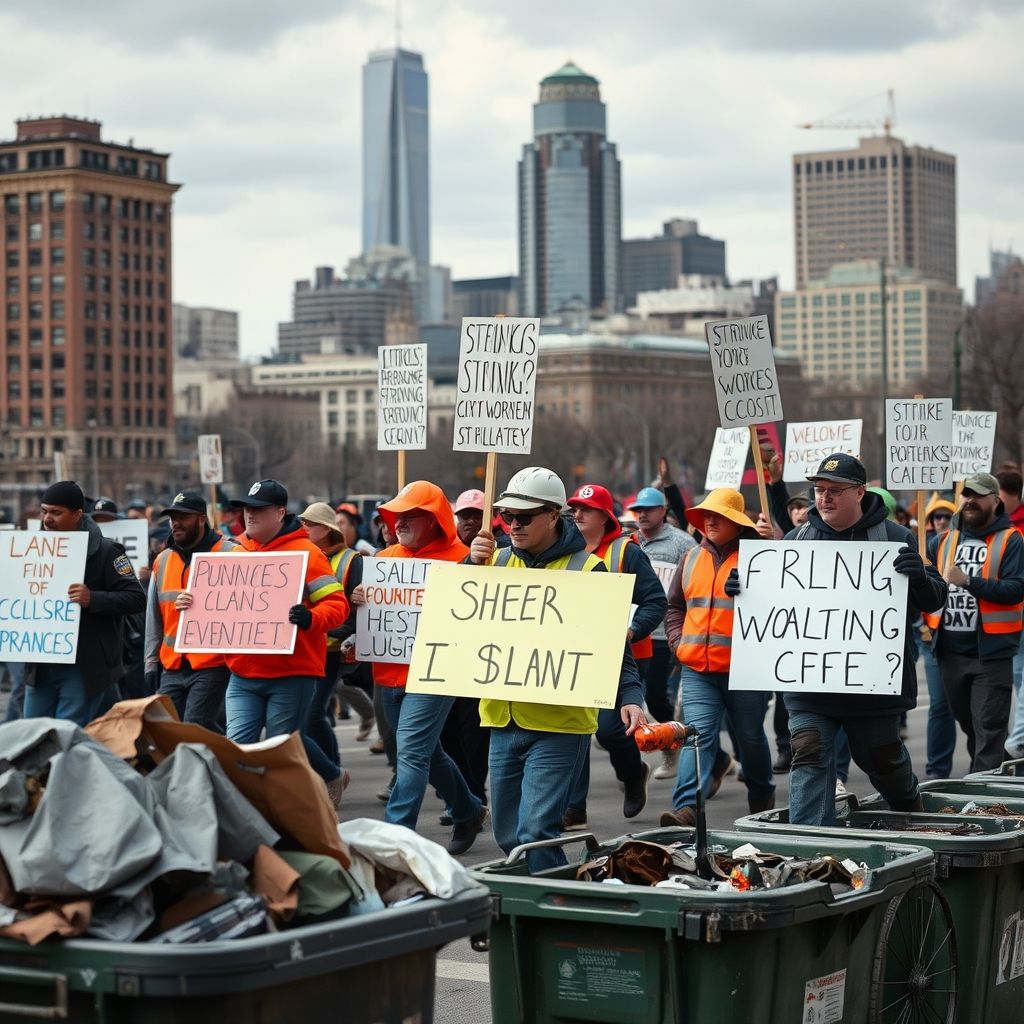Philadelphia Grapples with City-Wide Strike: Services Halted as Negotiations Stall

Philadelphia Faces Major Disruption as City Workers Strike
Philadelphia is experiencing significant disruption following the commencement of a city-wide strike by approximately 9,000 municipal workers. The strike, which began on July 1, 2025, involves members of AFSCME District Council 33 and marks the first such labor action since 1986. The standstill has brought a halt to numerous essential city services, impacting residents across the city.
The crux of the disagreement between the union and the administration of Mayor Cherelle Parker centers on key issues including compensation and healthcare benefits. Negotiations, which had been ongoing in the weeks leading up to the strike, failed to produce an agreement, leading to the current standoff and the city’s operational challenges.
Key Services Impacted by the Strike
The ramifications of the strike are being felt city-wide. A significant consequence is the disruption of trash collection, leading to overflowing bins and potential sanitation issues. Beyond waste management, the strike impacts several critical departments and services, including:
- 911 Dispatch: Potential delays and reduced staffing could impact emergency response times.
- Water Department Operations: Maintenance and repairs of the city’s water infrastructure could be affected.
- Other City Services: Various other municipal functions are also experiencing disruptions due to the strike.
The scope of the strike highlights the vital role these city workers play in the day-to-day functionality of Philadelphia. The absence of these employees underscores the critical importance of reaching a resolution quickly to minimize the impact on the city’s residents.
The Main Points of Contention
At the heart of the labor dispute are disagreements over fair wages and employee benefits. AFSCME District Council 33 is reportedly seeking an 8% annual pay increase for its members over a four-year period, alongside comprehensive healthcare benefits that its members feel they deserve. Union representatives believe these measures are necessary to address the rising cost of living and ensure fair compensation for their members.
In contrast, Mayor Cherelle Parker‘s administration has put forth a different proposal. The Mayor has offered a pay increase of over 12% across her term, which she stated would be the largest in over three decades. The specifics of the healthcare benefits offered by the city have not been disclosed.
Historical Context and Future Outlook
The last time AFSCME District Council 33 initiated a strike was in 1986, making this recent action a highly significant event for the city. The protracted negotiations indicate a difficult road ahead, and the city’s residents will need to adjust to the ongoing service interruptions. Both sides have indicated a willingness to return to the negotiating table, but the chasm between their positions remains considerable.
The city’s future will largely depend on the ability of both sides to find common ground. The duration of the strike will impact the city’s budget, and the longer the labor unrest continues, the greater the possibility that the city could face significant long-term ramifications. The eyes of the entire state are on Philadelphia as this unfolds.
The outcome of these negotiations will undoubtedly shape the future of labor relations in Philadelphia and set a precedent for municipal worker contracts in the region.
Further Reading:
https://www.cbsnews.com/philadelphia/news/trash-strike-philadelphia-district-council-33/
https://apnews.com/article/philadelphia-labor-strike-trash-911-july-4-969cfa2d8f9695b199013690ad694555
https://www.nbcphiladelphia.com/news/local/strike-afscme-district-council-33-union-philadelphia-july-1/4222528/




